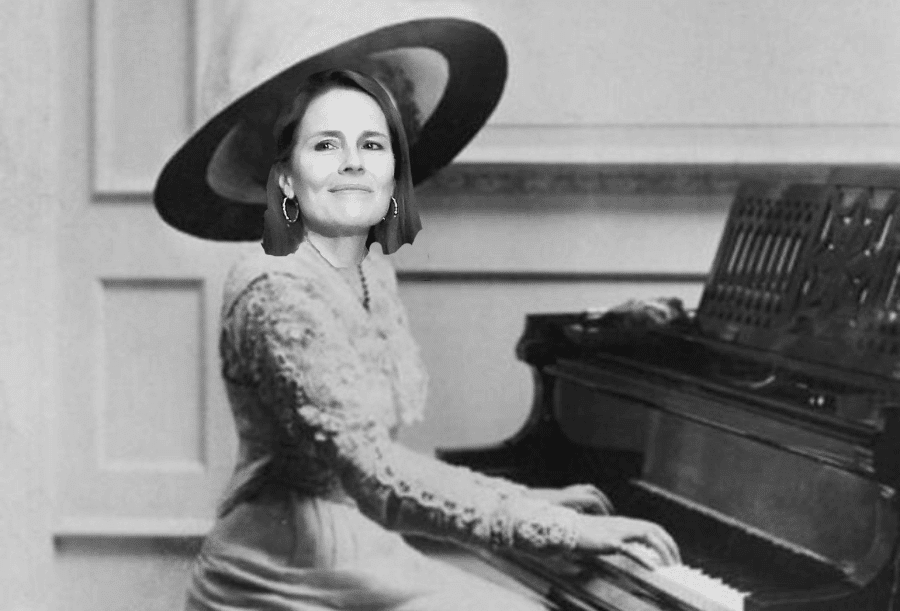I never had piano lessons. Oops, there go my SCOTUS dreams. Not being skilled at tickling the ivories would seem to now disqualify me from ever sitting on the Supreme Court. At least that was my take away from the confirmation hearings for Supreme Court nominee Amy Coney Barrett.
For hours Republican senators from the Judiciary Committee practically stopped probing about her judicial philosophy. The judge didn’t offer up anything on how she would rule on abortion rights, the Affordable Care Act, and the 2020 election if confirmed to SCOTUS.
But thanks to Ted Cruz’s hard-hitting grilling we did get answers to those burning questions Americans in the midst of a pandemic needed to know: Did she take piano lessons? Did her children? On those questions Amy answered clearly in the affirmative. Now we know where she stands on flats and sharps, though her position on Steinway v. YAMAHA as the best piano still lingers.
Ted Cruz and Amy Barrett are not alone in thinking piano lessons are an important part of a child’s education. Or once was.
Learning to play the piano used to be a rite of passage for generations of children, especially girls. It was thought to not only give you a step up into a world of culture and refinement, but increase your popularity and make you a lady. Most importantly for girls, it would increase your chance of snaring a ring on your finger. Of course, that notion dates back to the turn of the last century, a place Barrett might want to return women’s rights to.
Read More: What Women Need to Know About Amy Coney Barrett, Nominated to Replace RBG
My Grandmother Might Have Made a Good Supreme Court Justice
In 1916, when my Brooklyn born grandmother Sadie was a girl, a piano in the home was a symbol of not only high culture but a sign that a family had “made it.” As the daughter of a successful Jewish immigrant business owner, their Victorian-era Gabler upright made of dark, exotic Honduran Mahogany wood had a place of honor in their Williamsburg parlor and spoke of their standing.
Piano playing was such an important attribute that shadchens (matchmakers) even noted it as an asset in their evaluations of a potential bride. The conventional wisdom was that by investing time, money, and attention to give their girls lessons, even a “plain Jane” had an edge in the matrimonial game.
Sadie practiced diligently, mastering Mozart against the audible ticks of a metronome. But being an All-American girl, her tastes and tempo in music ran more ragtime than Beethoven. Family lore never mentioned whether it was her piano skills that won over her future husband, but there was no doubt her snappy rendition of “Oh! How She Could Yacki, Hacki, Wicki, Wacki, Woo” made her not only a sought-after pianist at school parties but among the most popular girls at Erasmus High.
By the time she became my Nana Sadie in the late 1950s, she had long ditched that ragtime rhythm for more staid hymns, just as she would upgrade to a Steinway baby grand piano. Singing while she played, her dramatic voice reminiscent of Margaret Dumont, the hymns had a decidedly Christian flavor to them. While “Come All Ye Faithful” sounds just about right for Amy Coney Barrett, for my Jewish born grandmother they always sounded as off-key as her singing.
Why I Could Never Aspire to Amy Coney Barrett’s Position
Though I inherited my grandmother’s baby-blue eyes, her piano skills were never passed on to me. Sitting next to her on the piano bench in her elegant Manhattan apartment, I’d watch with wonder at her agile and quick fingers. But there would be no piano lessons for me. In fact, it was never considered.
Piano lessons took countless hours and dedication. In the modern space-age rush that was the 1960s who had time for such a tedious chore? Like millions, my suburban parents wanted the quicker, easy way that came with an electric organ, precisely a 1960 Magnus electric chord organ, which you could play the moment you removed it from the box. No music experience required; no hieroglyphic staff or clefs involved. Just match the numbers on the songbook to the numbered keyboard, as simple as the paint-by-number masterpieces my mother so enjoyed creating.
Ironically for such a modern convenience, the accompanying songbooks were woefully outdated with selections more appropriate for a barbershop quartet.
As I moved into my teens in the ’70s, at the time the women’s movement burst on the scene, the need to play the piano for a girl to be “date bait” fell out of favor, as did marriage itself. Suddenly women’s rights became music to my ears.
We can’t let Amy Coney Barrett change the tune.
Read More: Ruth Bader Ginsburg On What She Belives is the Biggest Threat to Democracy





















0 Comments